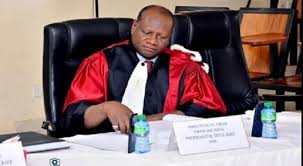APA – Dakar (Senegal) As Senegal prepares to hold election for a new president questions of peace and security are at the heart of a public debate about the future of democracy and its domino effect in the rest of West Africa.
By Oumar Dembélé
Africa’s westernmost country is approaching a crucial turning point with the election of its fifth president.
To mark the occasion, civil society leaders launched a symposium in Dakar on Friday on the state of democracy and the rule of law. The debate, led by think tank leaders Alioune Tine and Ousmane Sène and law professor Amsatou Sow Sidibé, focused on “compromises around the state” and “compromises around the law” at a time when Senegalese democracy is at a crossroads.
Senegal’s outgoing head of state, Macky Sall, is inviting political actors and the nation’s driving forces to a national dialogue on “forgiveness and reconciliation” beginning next week. The outcome of this dialogue is expected to be an amnesty law for the events that led to the loss of life and property between March 2021 and June 2023, during the violent protests linked to the legal problems of jailed opposition leader Ousmane Sonko.
The ceremony will be used, above all, to set the date for the presidential elections, despite the fact that sixteen of the nineteen candidates selected by the constitutional court do not agree with the format chosen by the president, whom they ask to organise the elections before April 2 and hand them over to his future successor. These various issues have caught the attention of Mrs. Sidibé, a former presidential candidate, who is alarmed by the state of democracy in her country.
A “violated” democracy
“In Senegal’s current context, democracy and the rule of law are under attack from all sides. We have to find answers to return to normality. This country needs stability and peace. We must respect the law in its elaboration, which must be consensual, a joint effort involving all the actors of society,” stressed the human rights activist, reminding those present that democracy and the rule of law are “a permanent quest” for any democratic country.
In this context, the retired professor of law said that she understands that “there is talk of compromise, but without compromise.” However, she regrets what happened on February 6, when the National Assembly voted on the bill to postpone the presidential elections from February 25 to December 15, 2024, an “unconstitutional” piece of legislation that was finally annulled by the constitutional court. But before that, “there was a massive presence of defense and security forces who evacuated the opposition deputies from the room. The law was approved without debate. That’s unacceptable,” said Amsatou Sow Sidibé.
During the discussions, Alioune Tine, founder of the Afrikajom center, one of the mediators between the government and the radical opposition represented by Ousmane Sonko, insisted on “the need for dialogue.” This is a position shared by the director of the West African Research Center (WARC), Ousmane Sène.
“Democracy cannot exist without peace and security,” he said, pointing out that dialogue and discussion, which are “part of Senegal’s tradition,” are “taking place” between the various actors involved in stability.
A victory for democracy
Despite the difficulties in applying the rule of law, law professor Papa Ogo Seck, president of the Association of African Jurists (AJA), noted that the Senegalese democratic model is like a reed that bends but does not break. He welcomes President Macky Sall’s decision to “submit to the law” by pledging to “fully” implement the constitutional court’s decision ordering him to organise presidential elections “as soon as possible,” stressing that this stance is “a victory for Senegalese democracy, a victory in the fight for the law.”
“Senegalese democracy has a variable geometry. We often think we’re in a dictatorship, but we’re not. The pillars that support Senegalese democracy are solid. Despite fluctuations, there is always a return to this democracy. And that’s the greatness and exceptionalism of Senegal,” said Mr. Seck, a university professor and specialist in political history.
In addition to panels on the new threats to security in West Africa and the originality of African democratic systems, the colloquium, which runs until Saturday, examines “the new pathologies of democracy” in the region and the example of Senegal in the specificity of African democracy, before turning to themes for “rethinking democracy” on the continent.
ODL/te/lb/as/APA


